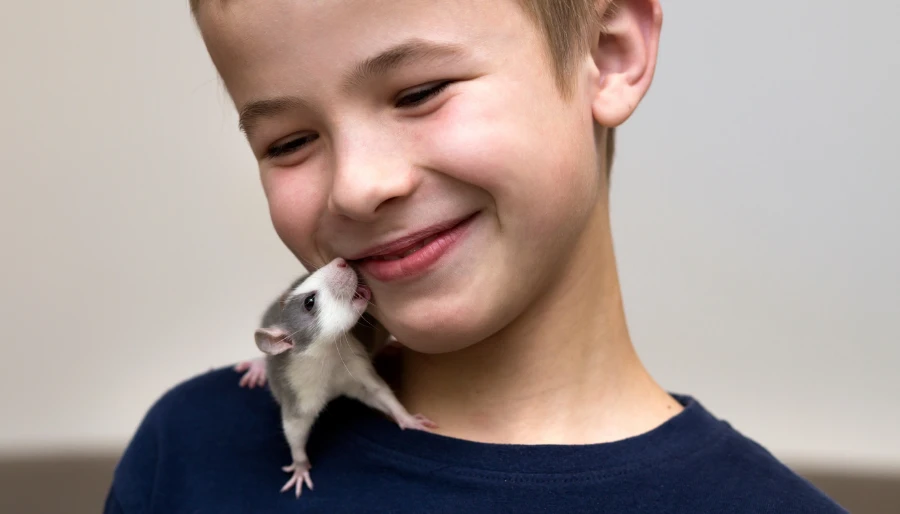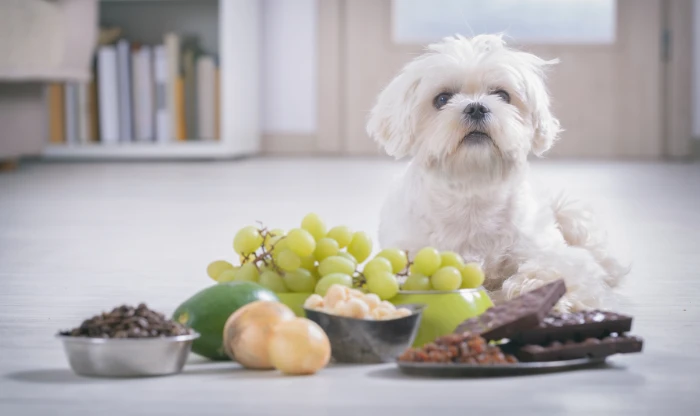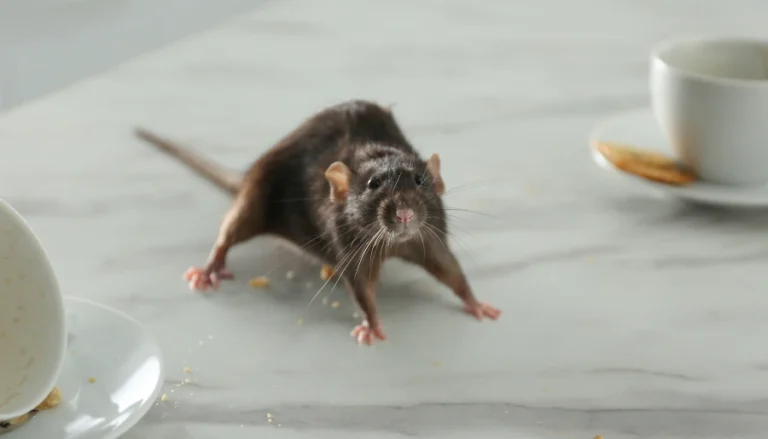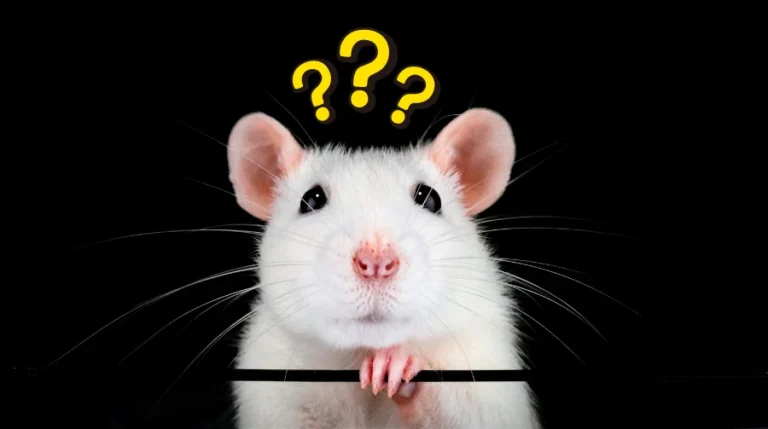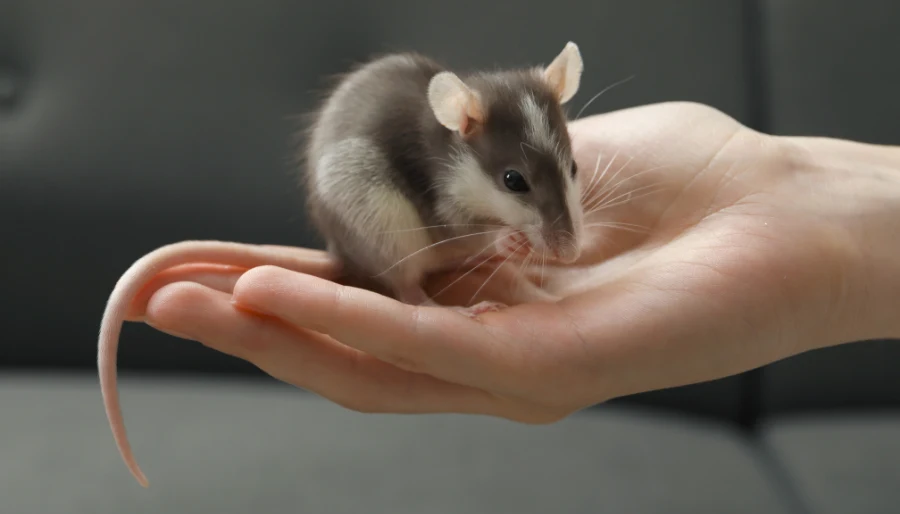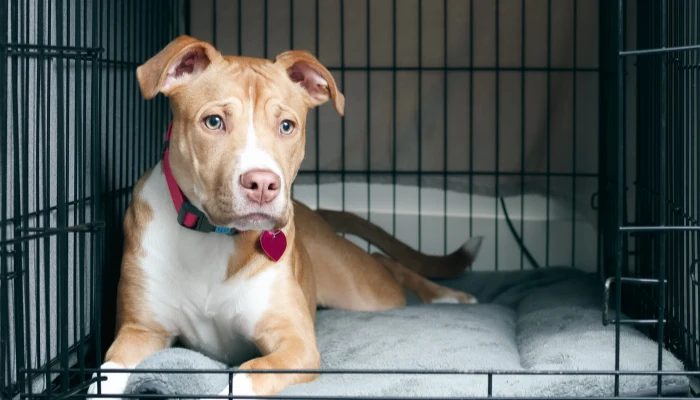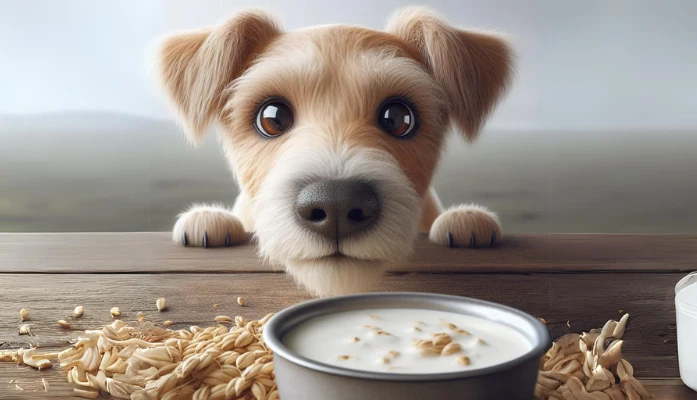Dogs might look at us with those big, pleading eyes, begging for a taste of whatever we’re eating. But not all human foods are safe for our canine companions. Some can cause mild digestive upset, while others can lead to severe illness or even death.
Here’s a list of some of the top people foods you should never feed your dog and the potential consequences of doing so.
1. Chocolate
Why it’s harmful: Chocolate contains theobromine, which is toxic to dogs. Dark chocolate and baking chocolate contain higher amounts of theobromine compared to milk chocolate.
Potential consequences: Vomiting, diarrhea, rapid heartbeat, seizures, and in severe cases, death.
2. Grapes and Raisins
Why it’s harmful: The exact substance in grapes and raisins that’s toxic to dogs is still unknown, but even small amounts can be harmful.
Potential consequences: Kidney failure, vomiting, and diarrhea.
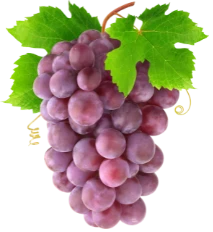
3. Alcohol
Why it’s harmful: Alcohol has the same effect on a dog’s liver and brain that it has on humans. But it takes a lot less to harm them.
Potential consequences: Vomiting, diarrhea, difficulty breathing, tremors, and even death.
4. Onions and Garlic
Why it’s harmful: They contain compounds that can lead to oxidative damage to red blood cells, making them more likely to rupture.
Potential consequences: Anemia, weakness, and difficulty breathing.
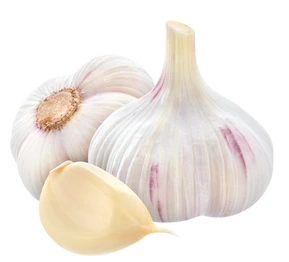
5. Caffeine (Coffee, Tea)
Why it’s harmful: Like chocolate, coffee and tea contain caffeine and other stimulants that are harmful to dogs.
Potential consequences: Restlessness, rapid breathing, heart palpitations, tremors, and seizures.
6. Macadamia Nuts
Why it’s harmful: The toxic substance in macadamia nuts is not yet identified, but it’s known to cause a reaction in dogs.
Potential consequences: Weakness, depression, vomiting, tremors, and hyperthermia.
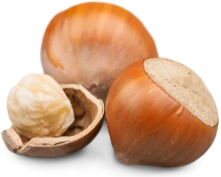
7. Bones
Why it’s harmful: While it might seem natural to give a dog a bone, cooked bones can splinter and block or cause cuts in a dog’s intestines.
Potential consequences: Obstruction or laceration of the digestive system.
8. Avocado
Why it’s harmful: Avocado contains persin, which can cause digestive upset in dogs.
Potential consequences: Diarrhea, vomiting, and heart congestion in rare cases.
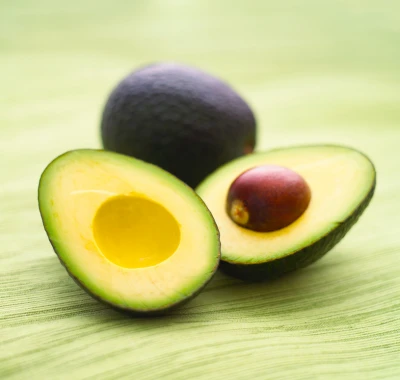
9. Raw Yeast Dough
Why it’s harmful: Yeast produces alcohol as it ferments, which can cause alcohol poisoning in dogs.
Potential consequences: Bloating, twisting of the stomach, disorientation, and respiratory failure.
10. Xylitol
Why it’s harmful: Often found in sugar-free gum, candies, and baked goods, xylitol can lead to the rapid release of insulin, causing hypoglycemia (low blood sugar).
Potential consequences: Vomiting, loss of coordination, seizures, and in severe cases, liver failure.
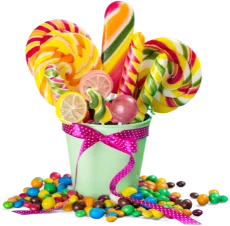
11. Salt
Why it’s harmful: Large amounts of salt can produce excessive thirst and urination, or even sodium ion poisoning in pets.
Potential consequences: Vomiting, diarrhea, tremors, elevated body temperature, seizures, and in severe cases, death.
12. Dairy Products
Why it’s harmful: Many dogs are lactose intolerant, which means they have difficulty digesting lactose, a sugar found in milk and other dairy products.
Potential consequences: Diarrhea, upset stomach, and other digestive issues.
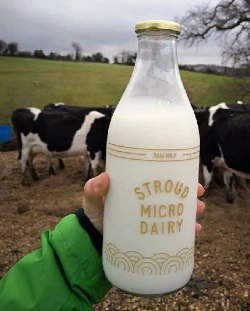
13. Fatty Foods and Undercooked Meat
Why it’s harmful: Fatty foods can cause pancreatitis in dogs. Raw meat can contain bacteria such as Salmonella or E. coli.
Potential consequences: Pancreatitis symptoms include vomiting, abdominal pain, and diarrhea. Raw meat can cause vomiting, diarrhea, and other food poisoning symptoms.
14. Peaches and Plums (specifically the pits)
Why it’s harmful: The pits of these fruits can block a dog’s intestines. Plus, they contain small amounts of cyanide, which is toxic.
Potential consequences: Choking, intestinal blockage, and poisoning from the cyanide.
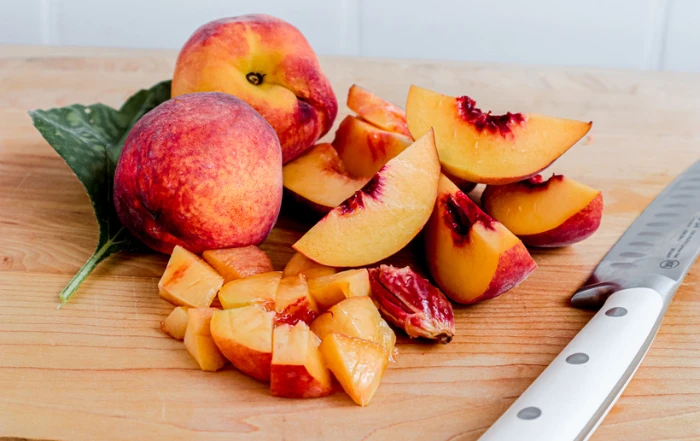
15. Candy and Gum
Why it’s harmful: Many candies, gums, toothpastes, and some diet foods are sweetened with xylitol.
Potential consequences: As previously mentioned, xylitol can lead to insulin release, hypoglycemia, liver failure, and other symptoms.
16. Corn on the Cob
Why it’s harmful: While the corn itself isn’t harmful, the cob can be a choking hazard and can block the intestines if consumed.
Potential consequences: Intestinal blockage, which may require surgery.
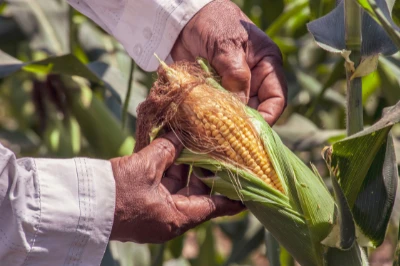
17. Nuts (especially Walnuts and Almonds)
Why it’s harmful: While not toxic like macadamia nuts, these nuts are high in fats which can cause vomiting, diarrhea, and pancreatitis in dogs.
Potential consequences: Upset stomach, pancreatitis, and digestive issues.
18. Fruit Pits and Seeds (like apple seeds, cherry pits, etc.)
Why it’s harmful: Apart from the choking risk, seeds and pits can contain cyanogenic glycosides, which can lead to cyanide poisoning when ingested in large quantities.
Potential consequences: Difficulty breathing, seizures, and in severe cases, death.
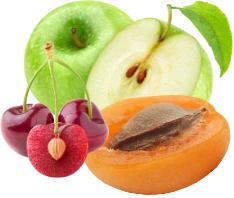
We love our dogs! And we want to share with them as much as possible, but there’s a downside to that generosity.
You share too many foods, especially those on this list, and instead of a late-night treat, you may end up on a late-night emergency vet run.
Or even worse, causing damage to their organs that becomes noticeable when it’s already too late for treatment.
More To Discover
- CBD for Pets: Unleashing the Secret to Happy Dogs and Contented Cats!
- Caring for Your Aging Dog: 8 Health Issues to Watch For And Which Breeds Are Most Susceptible
- Protecting Your Dog: Key Vaccines, Their Importance, and Average Costs
- 10 Alternative Therapies for Pets: Condensed and Summarized For Your Convenience
My final caution… sugar isn’t on the list above because it doesn’t cause substantial harm, but it does harm their dental health, so try to avoid sugary treats.
Always consult with your veterinarian before introducing any new food to your pet’s diet, and if you believe your dog has consumed something harmful, seek veterinary care immediately.
My general rule has always been, “When in doubt, keep it out (of your dog’s mouth).”

